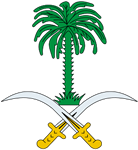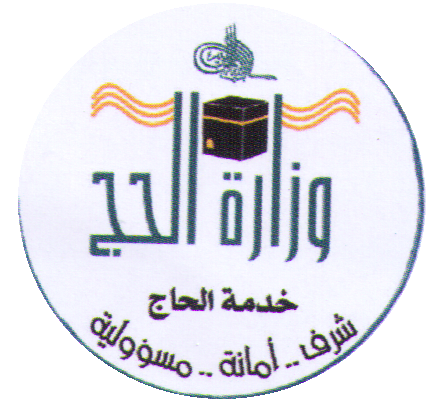Glossary
- Adhan (Azan)
- the call for prayers
- Afaqi
- one who lives outside the Miqat boundaries, outside Al Hil.
- Allahu akbar
- the phrase means "Allah (God) is great".
- Asr
- the afternoon prayer
- Bayt Allah
- another name for mosque, in general
- Bismillah
- this word means "in the name of Allah".
- Fajr
- the dawn prayer
- Ghusl
- bathing oneself
- Hadith
- a narration by a Companion about the life of the Prophet (peace be upon him) or a narration transmitted from the Prophet, usually indicating what is acceptable practice and what is not
- Halaal
- allowed, permitted
- Halq
- shaving the hair on one's head (see also Taqseer)
- Haram
- sacred land. The Holy City of Makkah has been a Haram since the time of Ibrahim. The Holy City of Madinah was declared a Haram by the Prophet.
- Iddtibaa' (Iztaba, Idtiba)
- the passing of the Reda under the right arms and over the left shoulder, thus leaving the right shoulder bare.
- Ihram
- the state of abstaining from committing cetain acts that are normally permitted. It is the state into which a Muslim must enter in order to perform the hajj (major pilgrimage) or the umrah (minor pilgrimage).
- Ihram
- a term used to denote the garment worn by pilgrims who have entered a state of ihram. The garment consists of two seamless pieces of white cloth, worn by men throughout the Hajj and designed to remove all marks of distinction between one man and another.
- Isha' (Isha)
- the night prayer
- Izarr (Ezaar)
- the cloth covering the lower part of the body
- Kaaba
- the sacred house lying at the heart of the Holy Sanctuary (al Masjid al Haram). The building is a large stone structure constituting a single room with a marble floor. The Kaaba is Islam's holiest shrine.
- Labbayk
- means "Here I am, at your service"
- Madrassa
- school providing religious and general education for Muslims
- Maghrib
- the evening prayer
- Mihrab
- Prayer niche, in front of which the Imam stands when leading prayers
- Miqat (Meeqat)
- one of five places (stations) which pilgrims must not cross before they are in a state of ihram if they intend to enter al Masjid al Haram for Umrah or Hajj.
- Mu'tamir (plural Mu'tamirun)
- one who is performing the Umrah
- Nafl
- a voluntary act of devotion such as a prayer or fast which is beyond the prescribed duty of a Muslim
- Niyyah
- intention (to perform Umrah or Hajj) or any action in general
- pbuh (PBUH)
- peace be upon him
- Qasr
- Shortening the number of Rakaat of noon, afternoon, or isha prayers
- Qibla
- the direction in which Muslims should face in order to perform salat (prayer), namely towards the Ka'bah, in Makkah
- Qur'an
- the Holy Book of Islam, the word of God vouchsafed to his Prophet Muhammad (peace be upon him)
- Rakaat (Rakat)
- one unit of Islamic prayer
- Rida' (Reda')
- the cloth covering the upper part of the body
- Sajdah
- the act of prostration, particularly in the performance of Salat
- Salat
- the Muslim practice of performing prayers five times daily in the prescribed manner
- Sana
- praise
- Sa'y (Sa'yi or Sa'i)
- the walking seven times between the hills of Safa and Marwah
- Shawt
- one circuit of the circumambulation of the Kaaba, or one complete walk between the hills of Safa and Marwah during Sa'y
- Shariah
- Islamic law
- Sunnah
- the way the Prophet Muhammad (pbuh) lived his life
- Talbiyah
- An invocation to be spoken out loud: 'Here I am O Allah, (in response to Your call), here I am. Here I am, You have no partner, here I am. Verily all praise, grace and sovereignty belong to You. You have no partner.'
- Tahlil
- to proclaim La Ilaha illa'Llah (there is no God but God)
- Takbir
- To proclaim Allahu akbar (God is Great)
- Taqseer
- Clipping or trimming the hair on one's head (see also Halq)
- Tawaf
- circumambulation of the Kaaba
- Thana'
- to invoke praise upon a person (or upon God)
- Wudu
- ablution
- Wuquf
- stopping at a particular place for a given period of time
- Zawal
- the time in the day when the sun is at its zenith
- Zuhr
- the noon prayer


